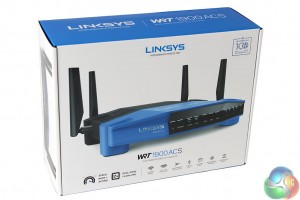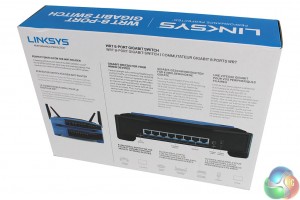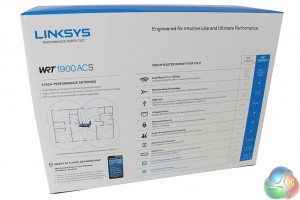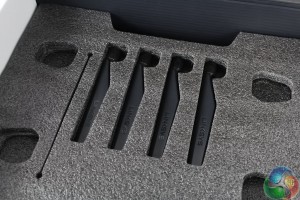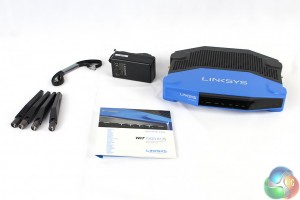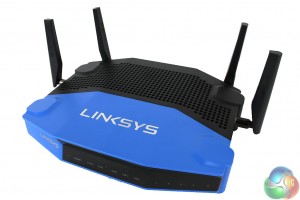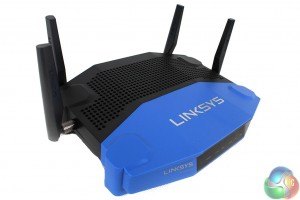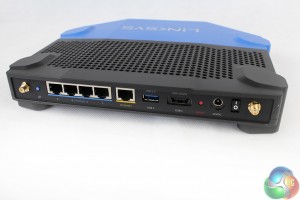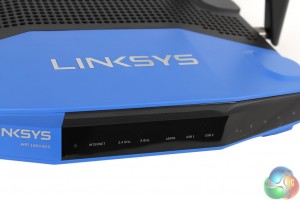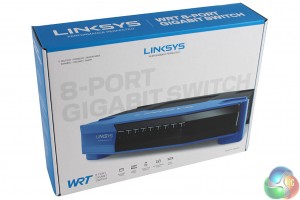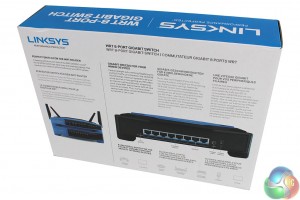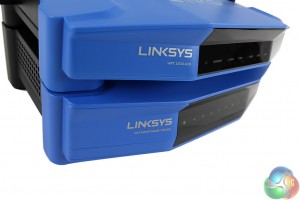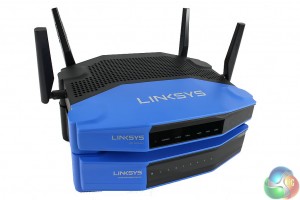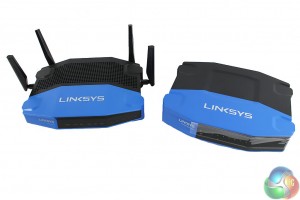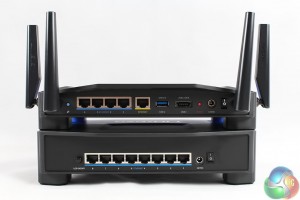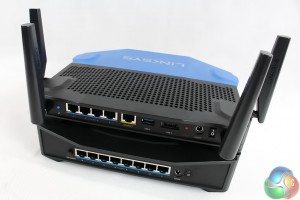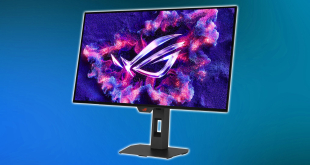Blue packaging for a blue product. The Linksys WRT1900ACS packaging outlines the main hardware features such as 600 Mbit/sec 802.11n connectivity (which requires a compatible client adaptor), along with the dual-core processor, USB 3 port and OpenWRT compatibility.
There’s a bit more detail of each feature on the back, explaining what beamforming does, showing off the mobile app and explaining why each feature is useful to have in a router.
Fairly standard stuff, but helpful when routers are on the shelves of general electronics shops like PC World, with networking novices trying to make a buying decision.
Four antennas are neatly placed on top of the package.
Joining a fairly modest number of parts. There’s the router itself, the antennas, a power adapter, a piece of very thin networking cable and a quick-start guide.
With the four antennas attached to the sides and rear of the unit, the Linksys WRT1900ACS has a look very much in keeping with the whole WRT range, which has always been designed to look blue and chunky.
At the rear is an absolutely standard array of ports, with four ethernet ports for LAN connections and a fifth for connection to a DSL or Cable modem. No DSL router is built-in.
There’s a USB 3 port, and the second one along is a combo USB 2 / eSATA port. Next to this is a reset switch and the main power connector, while the small blue switch on the far left is for WPS setup.
Activity LEDs show the status of power, internet and the two wireless networks, with additional lights for the USB ports, eSATA port and four LAN connections. A veritable disco.
And here is the matching network switch, with the imaginative title WRT 8-Port Gigabit Switch.
Switches are some of the simplest bits of networking hardware around, basically a big bunch of wires connecting paths together and a few circuit boards, so the marketing blurb at the rear of the packaging lists some features that are fairly common to all switches.
But stack them on top of each other and they look pretty cool.
Here they are next to each other.
And it looks just as cool from the back as well. Great for anyone with a mild OCD about their devices having a uniform appearance.
Of course, you don’t need to buy the switch to use the router, we just acquired one to show it off, as we think it’s the first and only example of matching network hardware used in this way.
 KitGuru KitGuru.net – Tech News | Hardware News | Hardware Reviews | IOS | Mobile | Gaming | Graphics Cards
KitGuru KitGuru.net – Tech News | Hardware News | Hardware Reviews | IOS | Mobile | Gaming | Graphics Cards


